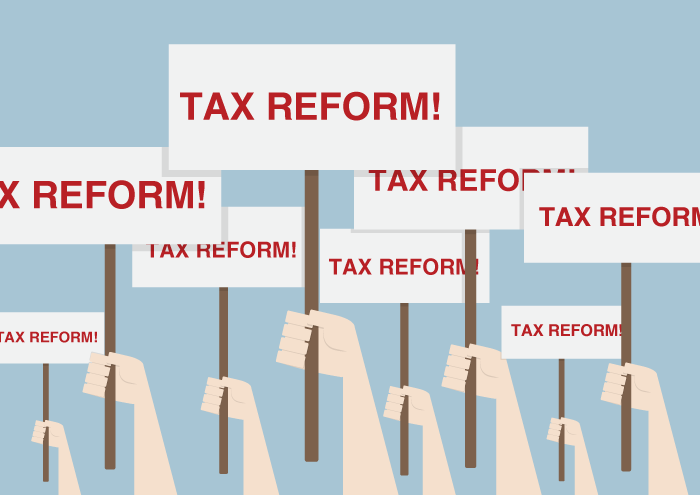The Fight for Tax Reform Will Be Long and Arduous

Is it starting to feel like the process to simply put up a new stop sign in the Nation’s Capitol would take an act of Congress? These days nothing is simple in Washington and when it comes to tax reform the battle will be anything but easy.
When President Trump took office it was widely believed that tax reform would be fairly simple and would come with only minor headaches. With the Senate and Congress both controlled by republicans, tax reform was just a matter of when, not if. Well, not so fast.
If you thought the battle for healthcare reform was tough, the nation’s lawmakers are just getting started. The interesting thing is, the tax reform battle isn’t just a matter of party lines. Republicans are very divided on tax reform, including what changes to make and how to pay for them.
There are several overriding factors that could delay tax reform even further, not to mention that another election cycle is coming up. First off, Congress needs to pass a fiscal budget for 2018 before it can take on tax reform. Secondly, republicans are divided over whether they should seek a tax cut or complete tax reform.
The battle over many long-standing tax incentives and breaks is also a big sticking point. Additionally, Obamacare is still unfinished business and it is looming over the current administration. Some lawmakers, including the president, are still focused on resolving that matter first.
Therefore, those still hoping for, or expecting, tax reform this year better prepare to curb their enthusiasm. This looks like another long journey with many twists and turns.
50 Tax Deductions You Should Remember
50 Tax Deductions You Should Remember 1. Accounting fees for tax preparation services and IRS audits 2. Alcoholism and drug abuse treatment 3. Amortization of premium on taxable bonds 4. Appraisal fees for charitable donations or casualty losses 5. Appreciation on property donated to a charity 6. Casualty or theft losses 7. Cellular telephones –…
Underpayment of Taxes – Personal Returns – How to Avoid Penalties – Dreaded “Spiky Income”
Underpayment of Taxes – Personal Returns – How to Avoid Penalties – Dreaded “Spiky Income” By Ron Cohen, CPA, MST Partner Greenstein, Rogoff, Olsen & Co., LLP One of the most frustrating issues taxpayers confront as they attempt to deal with their taxes is to determine the required amount and due dates for estimated tax…
Are You Ready for the 2014 Tax Year?
Are You Ready for the 2014 Tax Year? If you’re like most individuals or businesses then you’re probably breathing a sigh of relief as the 2013 tax year is finally in the rearview mirror, except for those who have filed for an extension, of course. Well, don’t get too comfortable; it’s time to start thinking…
6 Tips for Avoiding Digital Clutter
6 Tips for Avoiding Digital Clutter What is “Digital Clutter” and why do we need to avoid it? Although there isn’t a true definition for the phrase, we can define the term “clutter” and apply it to the digital world. “Clutter” is defined as a collection of things lying about in an untidy mess. Although…



